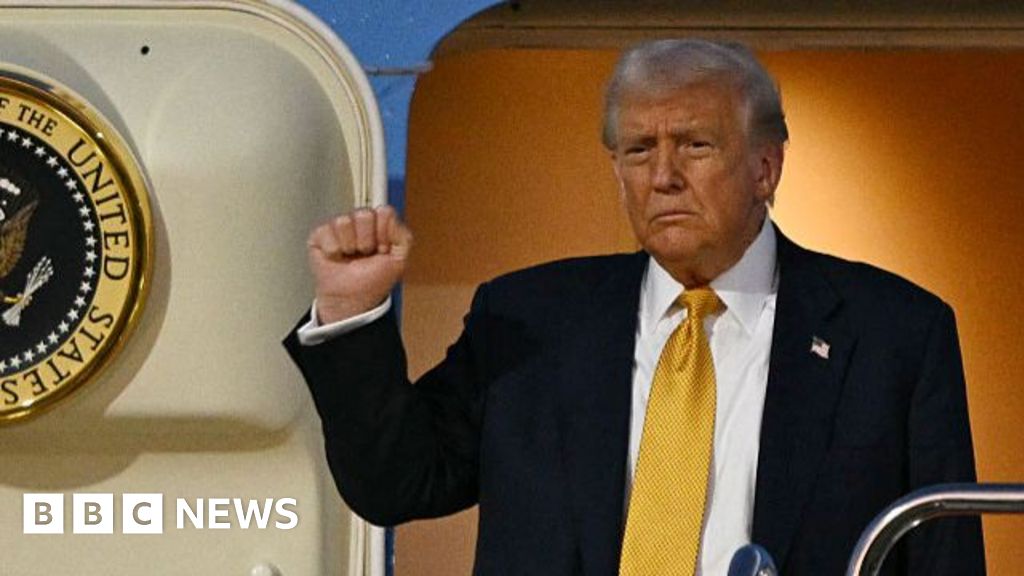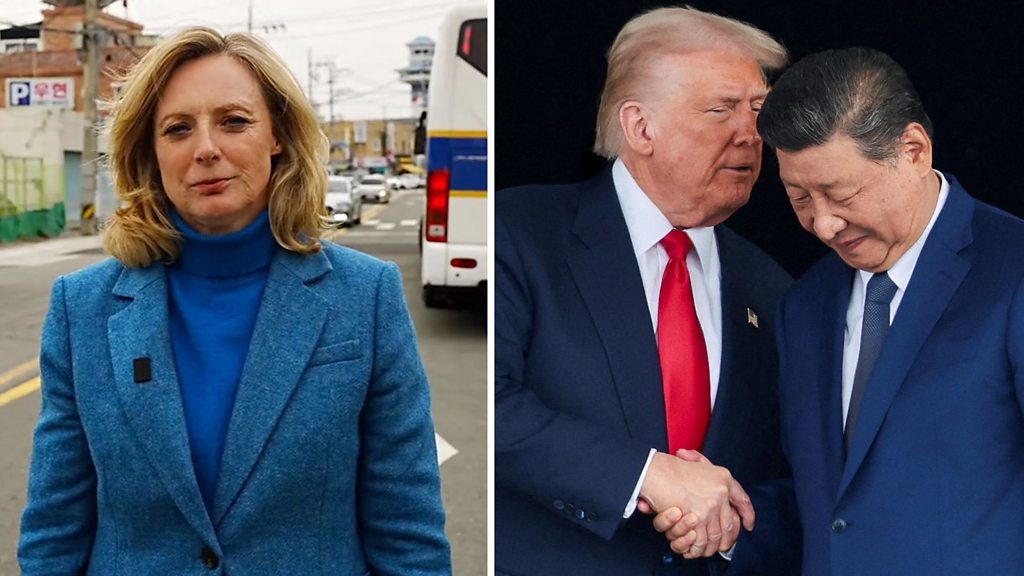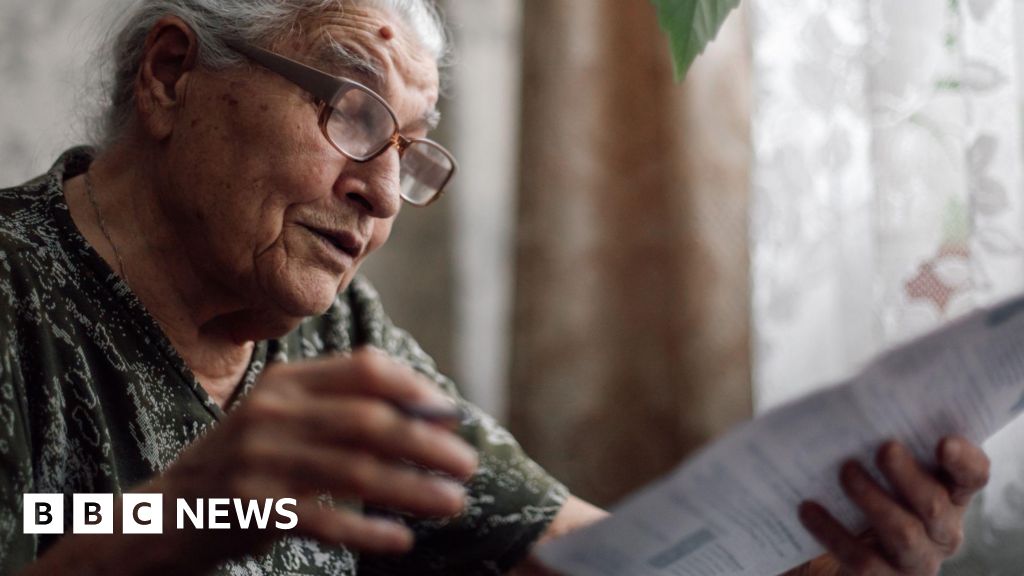The Arctic has often been described as exceptional, a region of cooperation rather than conflict, more open than exclusive. However, even before the negative impact of Russia’s full-scale invasion of Ukraine in February 2022, this narrative overlooked the increasing role of non-Arctic states in shaping the very meaning and condition of the Arctic. It overlooked the fact that, even though so-called Arctic outsiders lack ‘natural’ Arctic sovereignty – the possession of land, waters and the resources the region contains – they can still have a ‘natural’ interest in the Arctic due the region’s increasing global relevance. To add nuance in how to better conceptualize the regional influence of such outsiders, we introduce the idea of ‘outsider geopolitics’; the ways in which actors from outside the Arctic try to engage with and influence the region, even without ‘formal’ standing as Arctic states. Outsider geopolitics is not about belonging due to natural variables but rather about performing, perceiving, and legitimizing due to action. As such, outsiders often engage through diplomacy, science, or climate advocacy, framing their actions in accordance with regional priorities to gain regional recognition and credibility.
Rather than offering a full framework, our aim is to explore a spectrum of outsiderness from states and entities that have taken a symbolic interest in the Arctic to those deeply involved in its research, governance, and diplomacy over the past two decades. Here, we focus on France as performative, Turkey as symbolic, and the European Union as conditional cases, since they exemplify distinct modes of outsider engagement – normative, symbolic and institutional. This provides an analytical lens – or at least an initial effort to create one – to examine how non-Arctic actors construct their Arctic presence through different narratives, capacities, and geopolitical imaginaries.
Narrating the Arctic
Generally, Arctic outsiders imagine the region through constantly re-occurring and emotionally powerful visual and symbolic lenses: polar bears (sometimes even penguins), melting glaciers, vanishing ice sheets, stereotypical Indigenous lifestyle and a disappearing ‘last chance’ wilderness. These narratives generate both global concern and regional interest, as for example visible in the growing number of tourists visiting the Arctic, but tend simplify the multilayered issues of the region and the very condition that is the Arctic. From afar, the Arctic is (too) often narrated as a single space only and not as the complex cosmos of many Arctics. This asymmetry between external homogeneity and internal diversity is at the core of outsider geopolitics. It is not just that outsiders often see the Arctic differently; through their politics, research agendas and narratives, they also participate in defining what the Arctic is and what it ought to be.
Outsider engagement with the Arctic is shaped by questions of legitimacy. Non-Arctic actors do not just show up, they often stage their involvement carefully, through language and action, through diplomacy or science, seeking recognition from Arctic institutions and publics. If Arctic sovereignty is essentially all about natural regional possession goals (land, water), then outsider legitimacy depends on internal recognition. Outsiders cannot simply declare themselves relevant; they must be accepted as such. This makes Arctic politics a field of ongoing negotiation, where actors must continually calibrate their actions to remain credible and relevant. A key venue where these dynamics play out is the Arctic Council (AC). Observer status, for instance, does not come with decision-making power, but it carries symbolic weight. It signals that an actor is a recognized part of the conversation. Countries like Japan, the Netherlands or South Korea have all pursued observer roles while contributing to Arctic science and regional initiatives. These efforts are not just about policy, they are about belonging.
Most conversations about Arctic governance divide actors into rather simple categories: Arctic states vs. non-Arctic states, insiders vs. observers, us vs. them. But this binary does not reflect how Arctic engagement actually works. In practice, there are degrees of outsiderness, shaped by political access, historical ties, and how actors position themselves in Arctic narratives. Conceptually, this binary also does not take into account the over-phrased logic of ‘what happens in the Arctic does not stay in the Arctic’ and its – logical – consequence that developments outside the Arctic do also have an impact inside the Arctic.
We can think about Arctic outsiders along a spectrum, not as fixed types. For instance, performative outsiders like France or symbolic ones as Turkey; not Arctic states, but actively shaping Arctic narratives through their engagement. Then, conditional outsiders like the EU; present in institutions, but sometimes lacking full legitimacy or voice. These are not rigid boxes. States (and entities) shift along the spectrum depending on context; political, institutional, or even symbolic. The point here is not to reclassify actors, but rather to shift the lens to: Who gets to belong? Can outsiders perform their way in?
France and the Arctic: A Normative Outsider
France maintains a longstanding and layered relationship with the Arctic, rooted not only in politics but also in exploration, ethnography, and environmental science. Unlike many non-Arctic actors whose engagement is recent or strategically opportunistic, France’s Arctic interest is anchored in historical narratives and a normative commitment to climate and knowledge production.
Historically, France’s Arctic engagement began with early scientific expeditions, such as the “La Recherche expedition” in 1830s, and continued through the mid-20th century with figures like Jean Malaurie, whose ethnographic work with Indigenous communities still shapes the French understanding of Arctic societies. Similarly, the legacy of Paul-Émile Victor, a renowned polar ethnologist and explorer, continues to inform the French scientific tradition in polar research. Today, this tradition remains visible in institutions like the CNRS (Centre National de la Recherche Scientifique), where thematic research groups such as the GDR Arctique focus on anthropological, cultural, and environmental questions in the Arctic. Furthermore, the Tara Ocean Foundation has launched high-profile Arctic climate expeditions and its upcoming drifting Tara Polar Station continues France’s long tradition of scientific engagement in the region.
France’s Arctic narrative, therefore, is largely framed through science diplomacy, emphasizing climate protection and Indigenous perspectives. Like all Arctic-interested states, France acknowledges geopolitical and strategic dimension in its Polar strategy, which is à la mode, but what is at stake in its narrative is more upholding multilateral forms, bilateral environmental agreements, scientific engagement and global environmental governance. The current ‘Poles and Maritime Issues’ Ambassador Olivier Poivre d’Arvor has played a central role in organizing major environmental events, including the One Ocean Summit in Brest (2022) and the One Planet-Polar Summit in Paris (2023), which brought together global leaders to emphasize the urgency of polar and oceanic protection. These summits align with France’s broader strategy of positioning itself as a climate leader and defender of the global commons.
Yet, there are structural limits to this engagement. France’s visibility in Arctic affairs also comes through thematic diplomacy. The country is one of the three non-Arctic EU states (France, the Netherlands and Poland) to have appointed a dedicated Ambassador for the poles. The French Polar ambassadorship falls under the thematic ambassador positions as its Mediterranean ambassador, operates with a modest budget (17.000€; mission expenses, transport, representation costs), and is typically framed around soft diplomacy rather than strategic or economic interests. The current ambassador’s portfolio includes the Arctic, the Antarctic, and the French overseas territories. This combined title reflects a broad mandate, but also creates operational ambiguities. The time and attention required to address the pressing needs of France’s overseas territories often mean that Arctic-specific engagement is diluted.
France exemplifies what we term a performative outsider; a non-Arctic state that actively constructs its Arctic identity through symbolic, scientific, and normative engagement. While it engages strategically in terms of global environmental governance and multilateral diplomacy, it does not seek a material foothold in the region through military, extractive, or geoeconomic means. However, although France’s Arctic posture is often associated with normative leadership and scientific engagement, it does not ignore the region’s increasing geostrategic importance. Official French strategy documents acknowledge the evolving power dynamics in the Arctic. France has participated in Arctic economic activities for instance, through TotalEnergies’ involvement in the Yamal LNG 2 project in Russia’s Arctic, from which it withdrew following Russia’s full-scale invasion of Ukraine.
France also contributes to Arctic security through freedom of navigation patrols and maritime surveillance, reinforcing its long-standing commitment to the principle of free movement at sea. Yet, instead of advancing a grand national narrative of Arctic engagement, France situates its political and security posture within multilateral frameworks—most notably NATO and the EU. During his recent visit to Greenland, President Emmanuel macron also emphasized possible joint exercises within the framework of NATO. This reflects a deliberate restraint: the Élysée seeks to position France and by extension, Europe, as a responsible stakeholder in global affairs, emphasizing multilateral cooperation over geopolitical competition. In an era marked by growing instability, this narrative of responsibility also helps to frame the EU as a normative power in Arctic and global contexts alike.
In sum, France’s Arctic identity is not one of absence, but of selective presence rooted in the language of environmental protection of the Arctic and scientific responsibility. Whether this identity remains confined to normative performance or evolves into a more assertive role in shaping the polar environment remains an open question. France’s Arctic posture is closely aligned with its broader self-image as a climate-conscious, science-driven, and multilateral actor. Its narrative not only echoes internal diplomatic values but also aligns with Arctic institutional norms, such as environmental protection and Indigenous inclusion. In this sense, France’s outsiderness is co-constructed through a dialogic engagement with Arctic expectations.
The European Union and the Arctic? A Conditional Outsider (or Insider?)
While France asserts its outsiderness through history and science, the EU does so through institutions that seek legitimacy via geography, borders, and normative power in its pursuit of Arctic relevance. The EU being in the Arctic, and the Arctic being in the EU is not some kind of catch-22 situation but the result of almost 20 years of EU Arctic policymaking – and geography. Today, the EU has multiple strong reasons being present in the region and pursuing its interests. Firstly, the EU holds a tangible presence through geography, legal competencies, and contributions to Arctic science. It also wields influence through policies and regulations that not only determine access to its Single Market but also shape its environmental footprint in the region.
For decades, the EU has participated in various regional forums, including the AC and the Barents Euro-Arctic Council. Three EU Member States are Arctic states: Denmark (on behalf of Greenland and Faroe Islands, both of which are outside of the Union), Finland and Sweden. The northernmost regions of Finland and Sweden are subject to EU legislation and policies, benefiting from EU funding programs. This influence extends further to Iceland and Norway (excluding Svalbard) through the European Economic Area Agreement, which aligns the most EU norms with these two Arctic states. EU programs on research, innovation and regional development, along with cooperation formats like the Northern Dimension, further extend to the Barents region and the North Atlantic basin. The European Investment Bank also plays a significant role in financing Arctic projects. While Greenland is not part of the EU, the Union maintains close relations with this self-governing territory, cooperating in areas such as education, health, and fisheries, and recently established an office in Nuuk. Additionally, the EU collaborates on Arctic issues with Canada and the United States and, until February 2022, with the Russian Federation to support cross-border cooperation with the regions in northwest Russia.
As a major global economy, the EU also influences the Arctic through its shared responsibility for climate change, pollution from Europe reaching the Arctic, and its demand for Arctic resources. Additionally, the EU plays a key role in shaping international norms relevant to the Arctic. For example, the EU’s competences in maritime transport, environmental protection, or fisheries have made it an important actor in international negotiations, as well as a party to agreements and organizations concerning Arctic maritime navigation, marine biodiversity, or the governance of the Central Arctic Ocean. Most recently, the EU’s restrictive yet inherently porous measures against Russia provide another compelling example of the Union’s active role in shaping the Arctic’s economic landscape, particularly as Norway has supplanted Russia as the primary gas supplier since 2022. At the same time, the ReArm Europe plan, which aims to mobilize up to €800 billion in defense investments, includes all European Arctic states and is therefore set to reshape the region’s security landscape as well.
Additionally, EU policymakers have actively contributed to shaping the order of the Arctic region over the past two decades. Since 2008, they have continuously developed the Union’s Arctic policy, assessed its progress, strained relations with some regional stakeholders and brought an already complex region into an even more intricate EU regulatory orbit. Hence, the EU’s presence in the Arctic is not a geographic anomaly, but rather a political reality shaped by the Brussels effect. However, this reality is also a schizophrenic one. Today, EU policymakers can convincingly claim that the EU is in the Arctic. But do they fully comprehend the implications of this claim, given the complex apparatus in which they operate?
Considering that the North is one of three regional neighborhoods of direct geopolitical relevance to the Union (with the East and the South the other two), grasping its dynamics and complexities should undoubtedly be a priority. Yet, to truly understand its own Arcticness, the EU must go beyond merely defining or communicating its regional interests. It is not about relying on popular catchphrases, empty statements, or loosening the purse strings through funding and development programs. After nearly 20 years of Arctic policymaking, the focus should shift to internalizing Arctic issues and engaging with the feasibility of uni(on)fied anticipatory regional action – from the outside. If we consider AC observer status to be merely a symbolic effort – with the EU’s decade-long ‘hunt’ as a key example – a conditional outsider like the Union demonstrates its Arctic legitimacy through its (regulatory) efforts outside the Arctic, and not via internal legitimization mechanisms.
Turkey and the Arctic: A Symbolic Outsider
While the EU continues to grapple with the complexities of internalizing its Arctic presence through institutional coherence, Turkey – a relative newcomer to Arctic affairs – represents a different kind of outsider; one whose engagement is more episodic, symbolic and driven by strategic imagination. Turkey’s relationship with the Arctic remains limited in scope and strategic clarity. While there is no formal Arctic strategy, Turkish engagement in the region has been shaped by symbolic gestures, emerging scientific initiatives, and occasional media attention. At the scientific level, the Polar Research Institute leads Turkey’s Arctic activities, primarily through expeditions to Svalbard. While the Institute has made notable efforts to participate in international networks such as joining the International Arctic Science Committee (IASC), its core focus remains on Antarctic research.
In 2015, Turkey – along with Greece and Mongolia – applied for observer status at the AC, but all three applications were eventually rejected. No official explanation is recorded in the Council’s archives. However, based on observations and informal discussions, two potential factors may have contributed to the rejection: the lack of a clearly articulated rationale in Turkey’s application for why it should hold observer status, and broader political concerns related to Ankara’s increasingly authoritarian governance and perceived ideological divergence from key Arctic actors. The second reflects the Council’s reluctance to further expand the number of observers, which already exceeds that of Arctic states and permanent members (Notably, in 2021, the Czech Republic, Estonia and Ireland application for observer status was also rejected). This rejection, which received little media or political attention in Turkey, reflects the limited institutional emphasis of Arctic engagement at the time. According to the Turkish Polar Science Strategy 2023-2035, achieving its strategic objectives is expected to lay a strong foundation for Turkey to become an observer at the AC and to have a voice in the governance of polar regions. However, currently, it would be premature to interpret these Arctic activities as part of a broader science diplomacy strategy or long-term regional vision.
Institutionally, Turkey lacks a dedicated Arctic diplomatic apparatus. For example, its embassy in Norway which also covers Iceland could be tasked with Arctic affairs. Assigning the ambassador an Arctic portfolio would not only signal greater intent but also help institutionalize Turkey’s interest, if indeed such an interest is to be developed.
More recently, Turkey acceded to the Svalbard Treaty in 2024, internally framed as an economic opportunity, with coverage highlighting access to fishing grounds and untapped resources. This framing, however, reflected opportunism rather than a sustained or strategic Arctic vision. Rather, it coincided with Turkey’s intense diplomatic efforts in Ukraine and the Middle East, two regions central to its foreign policy agenda, suggesting that Arctic engagement was not integrated into broader geopolitical vision, but instead remained opportunistic and largely symbolic. This narrative reveals an aspirational, and at times selective, view of the Arctic, one that parallels how some external actors imagine resource-rich maritime zones like the Eastern Mediterranean. Yet as Turkey knows from its own neighborhood, such spaces are governed by complex multilateral dynamics
Turkey can be characterized as a symbolic outsider, a non-Arctic actor whose engagement is episodic, domestically driven, and often disconnected from institutional Arctic discourse. Its narrative emphasizes national aspiration, symbolic visibility and rising-power rhetoric while selectively engaging with Arctic norms. For instance, portraying the Svalbard Treaty as a steppingstone to political and economic opportunity, viewing AC observer status as a gateway to influence, or framing the Council as responsible for regional security reveals a disconnect between symbolic participation, procedural legitimacy, and on-the-ground realities.
Turkey’s Arctic identity is thus less co-constructed by Arctic actors and more self-styled shaped by its own strategic imagination rather than multilateral interaction. This stands in contrast to France’s more normatively driven and structurally embedded Arctic posture or the EU’s more institutional approach.
Conclusion
Outsiderness in the Arctic is not a fixed condition but rather a relational and narrated identity. Instead of providing a fully developed framework, this article proposes an initial conceptual spectrum. At the institutional scale, the EU emerges as a conditional outsider – formally present through partnerships and Member States, yet still struggling to assert narrative authority, particularly within its own ranks. France and Turkey, on the other hand, function as performative outsiders, constructing their Arctic presence symbolically through science, diplomacy, or normative claims.
A second layer is narrative pluralism. The Arctic is framed differently depending on the speaker and the institutional or disciplinary lens through which they view it. A climate scientist in Paris may highlight environmental urgency; a foreign ministry official in Ankara might emphasize geostrategic significance; while a decision-maker in Brussels may focus on institutional dynamics. Spatiality further shapes these narratives: for example, Turkey’s engagement is narrowly concentrated on Svalbard and is often aspirational, whereas the EU’s focus is on its Arctic Member States or Central Arctic Ocean governance. Temporality also plays a crucial role. In the early 2000s, France’s Arctic identity was centered on exploration and cultural diplomacy while the Union’s was (somewhat) linked to its Northern Dimension initiative. Meanwhile, Turkey had no noticeable Arctic presence or interests. Today, France defines its role primarily through climate diplomacy, Turkey through symbolic gestures, and the EU adapts its language to align with evolving global climate-security dynamics.
Finally, outsider narratives do not evolve in isolation. They are co-produced through interactions with Arctic states and Indigenous actors. While environmental stewardship once anchored these exchanges, today’s security anxieties and shifting alliances shape how insiderness is performed and how outsider roles are negotiated in response.
Understanding Arctic engagement through the lens of outsider geopolitics reveals that legitimacy is not passively granted but actively performed. Outsiderness is not solely about geography; it involves narrative alignment, institutional access, and the ability to speak the language of Arctic governance in a way that resonates with those within. In this context for example, India’s increasing Arctic presence is also not shaped by traditional notions of geography, but through the country’s ability to align its narrative with the priorities of Arctic governance. India seeks legitimacy in the Arctic not just through scientific research or economic interests but through a broader diplomatic engagement that resonates with the ethical and cooperative values embedded in its foreign policy. India’s approach to the Arctic is less about asserting territorial claims and more about aligning its actions with a global narrative of environmental stewardship, scientific cooperation, and peaceful diplomacy – values that echo its broader international strategy. In this way, India actively performs its outsiderness, negotiating its role in the Arctic by speaking the language of collaborative governance, much like its efforts in other international arenas.
Understanding Arctic engagement through the lens of outsider geopolitics reveals that legitimacy is not passively granted but actively performed. Outsiderness is not merely a matter of geography; it entails narrative alignment, institutional access, and the capacity to speak the language of Arctic governance in ways that resonate with those within. This dynamic is not confined to Europe only. India, for example, increasingly performs its Arctic outsiderness through scientific research and normative diplomacy, seeking legitimacy not through proximity but through alignment with the values and priorities that define Arctic governance. For Arctic states, this raises a critical question: how should they engage with outsiders whose legitimacy stems not from location, but from alignment and contribution?
Author notes: Andreas, though from a non-Arctic state (Austria), is professionally embedded in the Arctic and Norway, making him arguable less of an outsider than Eda. She is based in France, where institutional engagement with the Arctic remains peripheral. This individual aspect illustrates that outsiderness is not binary but gradated, shaped not only by geographic proximity, but also by institutional embeddedness, access to Arctic networks, and perception.

 Movie
Movie 3 months ago
146
3 months ago
146 





![Presidents Day Weekend Car Sales [2021 Edition] Presidents Day Weekend Car Sales [2021 Edition]](https://www.findthebestcarprice.com/wp-content/uploads/Presidents-Day-Weekend-car-sales.jpg)




 English (United States)
English (United States)